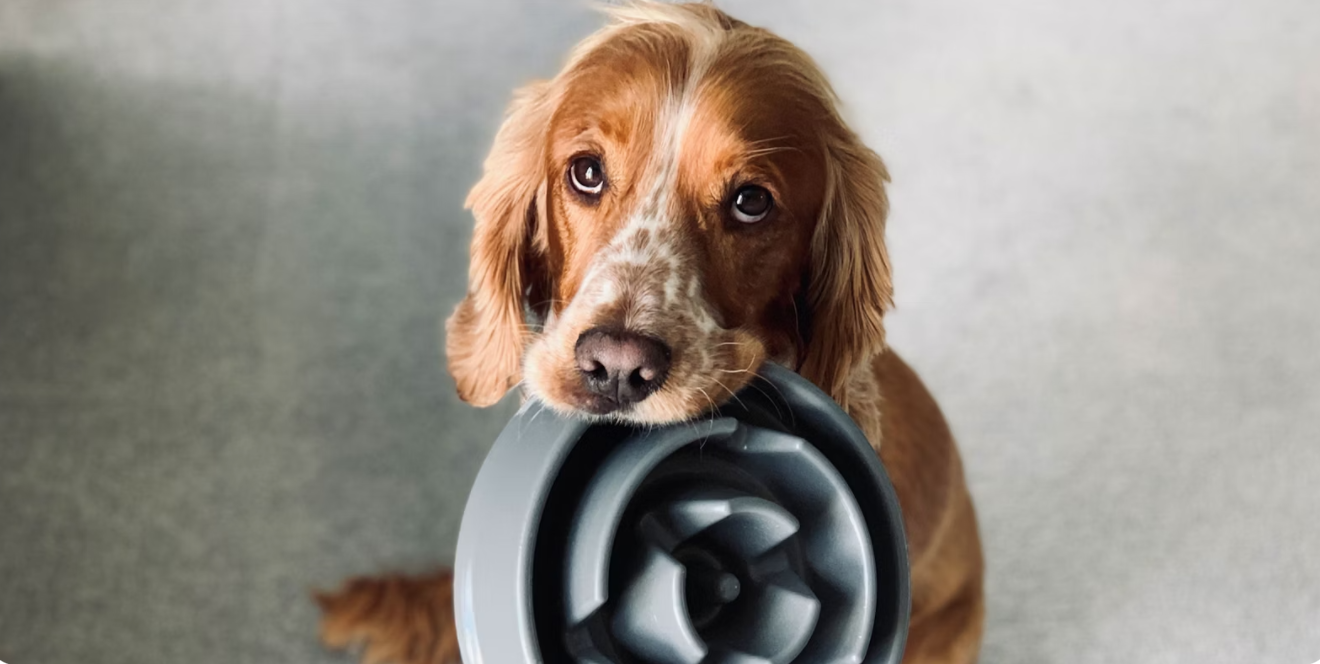Talk to pet parents anywhere and they will confidently declare that their fur babies are as obsessed with them as they are with him. Dog owners fawningly describe little Fido’s separation anxiety (which more often than not actually stems from the parents) and point to the loving licks and tail wags they receive to emphasize just how much their pooch adores them. However, are what these dewy-eyed pet parents describing actually acts of love or is Fido just kissing up to his treat dealer? Lately researchers have been contemplating this question and have begun to explore more deeply the nature of the bond between us and our pups.
THE EVOLUTION
Many researchers now believe that dogs evolved from wolves as early as 130,000 years ago, before humans began to live in settlements. This means that dogs and humans began their interaction on the hunting trail, as both species are hunters and probably followed one another to find and subdue prey. It is assumed that eventually certain wolves would have realized that the more accurate hunting techniques of humans, with their tools and unique innovations, could lead to scraps of food for them without much output of energy. These wolves would have displayed milder behavior to be able to remain close to the human hunters, who would have appreciated the wolves’ superior senses of smell and sound to help locate prey and avoid predators. Eventually these wolves would evolve into the wild and domesticated dog species we have today with their sociable behavior, shorter jaws, and smaller skeletal frames. In other words, dogs became dogs because of their interaction with humans, if our slightly narcissistic oversimplification may be forgiven. At that point in history, however, it seems clear that the bond between dog and human was based on the mutual benefits for survival that each species gained from the other.
THE SCIENCE
Many scientists continue to believe that because dogs evolved to be social creatures and have developed the ability to form necessary social bonds to thrive, the behavior we see in our pups today remains a product of self-interest. In other words, dogs are continuing their evolutionary ability to manipulate humans and behave in a way that will encourage us to love them, in much the same way as the mild-mannered wolf cozied up to the successful hunter. This is not to say that they cannot enjoy our companionship, but that the motivation for their enjoyment is gain, and that they basically see us as pleasant meal tickets. Even the anecdotal evidence of dogs saving their owners is explained away as dogs defending their resources.
We understand that this is not exactly what devoted pet parents want to hear, but don’t despair just yet, as recent research is beginning to contradict this traditional view of canine love. Scientists in the US and Hungary used MRI imaging in separate experiments to see which parts of dogs’ brains would light up when exposed to the sounds or smells of their owners. It was determined that the same area of the brain in dogs was stimulated when hearing or smelling their owners as the brain of human mothers when looking at photos of their babies. Furthermore, they determined a deeper activity when hearing their owner’s voice, than when hearing the voice of a human they knew but were not close to indicating a canine ability for deeper connections. Researchers also discovered that dogs produce the hormone oxytocin, which sometimes causes dogs to have watery eyes when greeting their owners after being apart for a few hours. Oxytocin is the same chemical humans produce when experiencing feelings of love. Finally, a 2022 rudimentary experiment showed that dogs who were left a few hours without food and then given the option to go to a full bowl of food or to their owners, chose their owners in eight out of ten instances.
THE CONCLUSIONS
Although these experiments were limited in scope, and the research is new, preliminary findings are promising for pet parents. We are not in a one-sided relationship after all, and although dogs evolved to view humans as a resource to gain food, they have come to develop deeper feelings for us. We may conclude that dogs’ ability to form social connections is still evolving and that like the evolution from wolf to dog was a result of human interaction, the transition from self-interested sugar baby to loving fur baby will continue to develop, as dogs continue to be exposed to humans.






